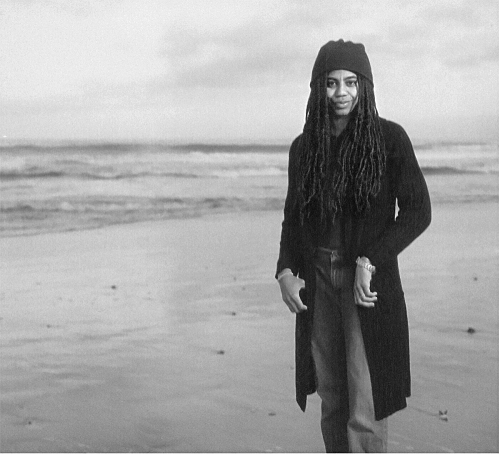
Ismail Kadare
“I had three choices: to conform to my own beliefs, which meant death; complete silence, which meant another kind of death; to pay a tribute, a bribe. I chose the third solution by writing The Long Winter.”

“I had three choices: to conform to my own beliefs, which meant death; complete silence, which meant another kind of death; to pay a tribute, a bribe. I chose the third solution by writing The Long Winter.”

“One of the first things I tell my classes is, If you want to write, keep a low overhead.”

“If you believe in its literary and moral seriousness ... it becomes a literary statement.”

“Gertrude Stein did us the most harm when she said, ‘You’re all a lost generation.’ That got around to certain people and we all said, ‘Whee! We’re lost.’”

“All writing, for me, is a relationship. I don’t feel like I can do whatever I want with whomever I want. It’s call-and-response.”

“[With Dr. Zhivago] it seemed to me that it was my duty to make a statement about our epoch. I wanted to record the past and to honor the beautiful and sensitive aspects of the Russia of those years.”

“I didn't set out to be a troublesome writer, but if that's what I've been, I am totally unrepentant.”

“I reincarnated [Thomas Moore] again in my new novel and I'm sorry to say he has fallen upon hard times; he is a far cry from the saint, drinks too much, and watches reruns of M*A*S*H on TV.”

“Writers who pontificate about their own use of language drive me right up the wall. In what spare time I have, I read the expert opinions of V. S. Pritchett and Edmund Wilson, who are to my mind the best-qualified authorities on the written English language.”

“I just want to see whether it’s possible to entertain Freud’s fantasy of a realistic biography. It may not be a possible thing to do.”

“I feel as if I start in a kind of wilderness, and I’m sort of making a way, a crossable path through it. Eventually I can realize where a poem came from—but that’s rarely what the poem is about.”

“Advice and instruction have always fascinated me, partly because of their pathos—so little is transmitted in any given instance of advice or pedagogy.”

“The other night I watched some politicians on television talking about Vietnam. I wanted very much to burst through the screen with a flamethrower and burn their eyes out and their balls off and then inquire from them how they would assess this action from a political point of view.”

“There is an immense abyss between the very few who have money and the vast number who are poor.”

“Even Saint Teresa said, ‘I can pray better when I’m comfortable.’ I don’t think living in cellars and starving is any better for an artist than it is for anybody else.”

“It is doubtful whether the individual soul is going to be allowed to survive at all. Now you get a Buddhist movement with everything except Confucius taken into it.”

On seeing a sexually suggestive billboard: “ . . . I'm not sure that I really particularly want to see [the actor] having her. I think my own imagination would be better about that than him doing it.”

On how music is an intimation of death: “You start the song. . . and you know, even as you round the corner of the first verse, that it’s only going to last for four and a half minutes. All you can do is keep moving to it.”

Imagining Emma Bovary in bed: “[She’d be] rather stunned and frantic, I would think. And I don't say it to be comic. I suspect stunned and frantic, breathless and shockingly cold to the touch.”

On the dangers of researching his books in the field: “I could never be left alone. I had to run when they ran. It can be pretty scary to get lost in a building. You're with the cops. Everybody hates the cops.”

“I was having tea with [Yeats] one day, and I remember he picked up a pot of tea and, finding that it was already full of old tea, he opened the window of his Georgian house and flung the contents into the square! Rhetoric poured out of him all the while.”

“The reason I put out-of-the-ordinary names on characters is because the John Smiths of the literary world make me sick.”

“Writers had better not be too cocksure that they’ve got inspiration on their side.”

“Latin American countries, in their instability, give writers and intellectuals the hope that they are needed. In Latin America there's the illusion that a writer can change something; of course, it's not that simple.”

“I think of America as my audience, and inside that space are white people as well as people of color.”

“I worked at a library and that’s where I first read James Baldwin. I think it was Notes of a Native Son. It stopped me cold.”

“One day in the snow I felt so tired. I thought, ‘Damn it, I'll sit down. I can't go on’ . . . So I sat down on the ground. But it was so cold I got up. Oh yes, I used to try to imagine death, but I always come up against a wall.”

On the difference between eroticism and poetry: “When the crudity of the sexual act goes through the imagination it becomes eroticism, and when it doesn't, it is pornography.”

“I write novels quickly, which is not my reputation.”

“The first thing they’d say was ‘This is a nice story—where’s your novel?’ And I would just lie my head off. ‘Oh, it’s at home. It’s almost there!’”

“All art is a lie, insofar as truth is defined by the Supreme Court. After all, Picasso's goat isn't a goat. Is the artist a liar, or simply one for whom even a fact is not a fact?”

“[The idea of] ‘free love’ . . . was implicit in communism, because Lenin said ‘Sex should be like having a glass of water.’”

“The idea is to turn flesh and blood into literary characters and literary characters into flesh and blood.”

“I love immersing myself in the universe of a novel for years. There is never a time when I am more alive.”

“I must love big novels, because that’s what I’ve written. It takes a while before you begin to breathe the air the characters breathe.”

“A story doesn’t have to be simple, it doesn’t have to be one-dimensional but, especially if it’s multidimensional, you need to find the clearest, most engaging way of telling it.”

“What’s recombinant rhyme? It’s like how they add a snip of the jellyfish’s glow-in-the-dark gene to bunnies and make them glow green; by snipping up pieces of sound and redistributing them throughout a poem I found I could get the poem to go a little bit luminescent.”